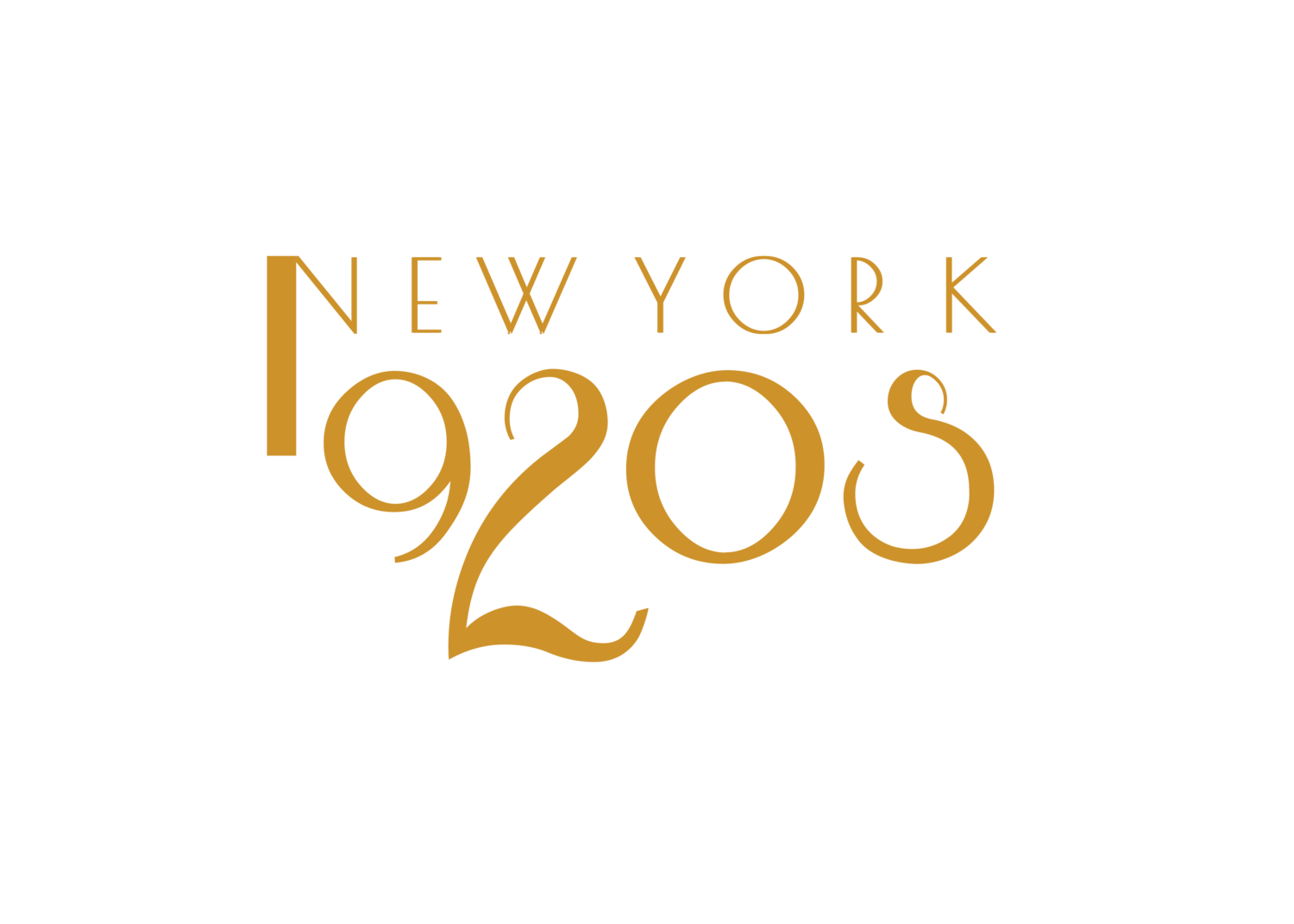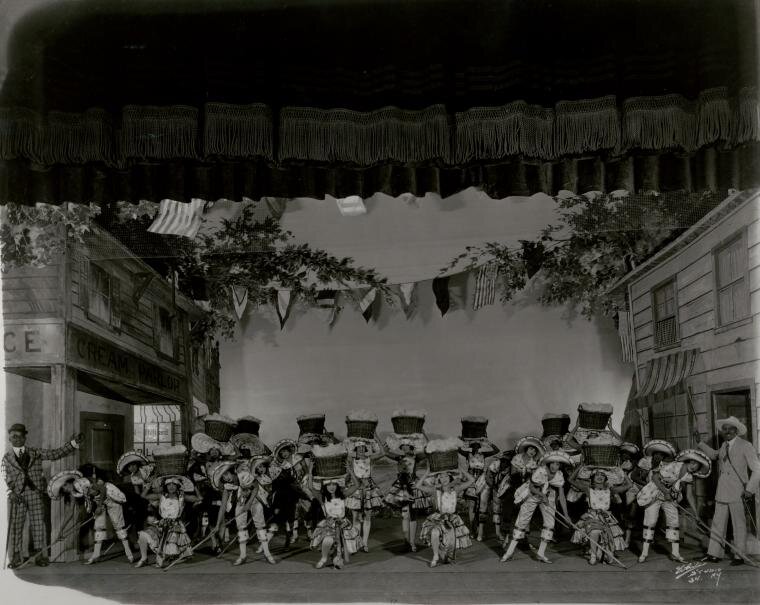Shuffle Along (Part II)
Today's guest-post is from Zachary Price, University of California, Irvine. See full bio, below
New York Age, 23 July 1921, p. 6. Newspapers.com
One hundred years ago today, the musical play Shuffle Along was in its ninth week of its run at the Cort’s 63rd Street Music Hall, near the intersection of 63rd Street and Broadway. While the musical is best known for its run in New York, it is important to note that the piece had an initial run at the Howard Theater in late March, 1921 for two weeks. The Howard Theater is a historic theater located at 620 T Street, Northwest, Washington DC that opened in 1910 and supported African American groups such as the Lafayette Players and Howard University Players (associated with the Historically Black College, Howard University). Shuffle Along was then remounted in New York on May 23, 1921 and would go on to have 504 performances.
Note: We reported on the NYC debut of Shuffle Along in our post for May 23, 1921.
Complicated and even contradictory as it may seem by contemporary standards because of its incorporation of blackface, racial stereotype, and a nebulous plot structure (the show was more of a revue of musical pieces than a sophisticated drama), Shuffle Along was an example of Black entrepreneurship which the poet Langston Hughes contended marked the beginning of the Harlem Renaissance. In addition to the substantial duration of the Broadway run, Shuffle Along’s success is lauded for its utilization of an entirely Black production team and cast after more than a decade-long absence of Black performers from the American main stage. As scholar David S. Thompson observed, “While Shuffle Along was not the first show to feature an entirely African American cast, it has been hailed as the first to extend such a company to include the creators of the book and score while boasting an impressive roster of additional innovations” (Thompson, 97). The musical was the result of the collaboration between Eubie Blake, an American pianist and composer of ragtime music, popular and vaudeville tunes, and scores for musical theater and singer and lyricist Noble Sissle. Sissle and Blake were noted for being in vaudeville, but becoming the first African American musical act to perform professionally neither wearing blackface makeup nor using stereotypical dialect that was associated with blackface minstrel performance.
Billy Rose Theatre Division, The New York Public Library. "Scene from the stage production Shuffle Along." The New York Public Library Digital Collections. 1921.
Yet, when the duo collaborated with writer-performers Flournoy Miller and Aubrey Lyles to produce Shuffle Along, which played for full Broadway prices, the production incorporated blackface, light vaudevillian racial stereotype (which was immediately followed by a sentimental love ballad in order to offset Black caricaturing), and a relatively simplistic plot, all of which vaudeville audiences would have found more than familiar. The vague plot revolved around the characters Sam and Steve who run for mayor in Jimtown, USA. They agree that if either one wins, he will appoint the other as his chief of police (a somewhat farcical nepotism that does strike as all too possible in the political climate of 2021). Sam wins with the help of a crooked campaign manager (again, a farce that follows tragedy). Sam keeps his promise to appoint Steve as chief of police, but they begin to disagree on seemingly petty matters and then resolve their differences in a rousing, humorous twenty-minute fight scene. As the two fight, their opponent for the mayoral position, Harry Walton, vows to end their corrupt regime, underscored in the song “I’m Just Wild about Harry.” In a trite dénouement, Harry wins the next election as well as the girl and runs Sam and Steve out of town.
Billy Rose Theatre Division, The New York Public Library. "Scene from the stage production Shuffle Along." The New York Public Library Digital Collections. 1921.
Billy Rose Theatre Division, The New York Public Library. "A Scene from the stage production Shuffle Along." The New York Public Library Digital Collections. 1921.
Despite the blackface and reliance upon vaudevillian plot structure, the musical was a breath of fresh air for American musical theater which had seen a dearth of Black actors on the stage between 1910 to 1920. The first decade of the Twentieth Century gave rise to Black productions such as In Dahomey (1903) and Abyssinia (1906). However, the presence of Black actors on Broadway soon faded. As Thompson goes on to suggest, “by the time Shuffle Along opened in 1921, such endeavors were a dim memory. A combination of factors—including a political atmosphere that generally dampened race relations, a rise in segregation in the theatre and elsewhere, and a paucity of available theatres—meant that few entrepreneurs were willing to stake money on a black show. Many black performers shifted their focus from theatre and adapted their talents for vaudeville” (Thompson, 102). Shuffle Along provided entertainment for both Black and Euro-American audiences and simultaneously launched the careers of its creators (Sissle, Blake, Miller, and Lyles) as well as cast members such as Josephine Baker, Adelaide Hall, and Paul Robeson. In addition, the score created a sensation in sheet music sales as well as recordings for many of its songs, but particularly for the signature tune “I’m Just Wild About Harry,” a sensation that became Harry S. Truman’s 1948 presidential campaign song and was featured in Warner Brothers cartoons. However, most importantly, it demonstrated that there was a desire to see and pay for Black actors on the stage.
"I'm Just Wild About Harry." M. Witmark & Sons, 1921. Indiana University.
It should be noted that while later mid-twentieth-century revivals of Shuffle Along never enjoyed the success of the 1921 iteration, the director and playwright George C. Wolfe conceived, produced, and directed another version titled, Shuffle Along, or The Making of the Musical Sensation of 1921 and All That Followed at the Music Box Theatre in New York which ran from April 28 to July 24, 2016. The piece was choreographed by renowned tap dancer Savion Glover, and included talent such as Audra McDonald, Billy Glover, and Brian Stokes Mitchell. Similar to the 1921 iteration, the 2016 enjoyed box office success yet the production closed after only one hundred performances, while it was still taking in revenues of nearly one million dollars per week. According to scholar Kristin Moriah,
The controversy surrounding the decision to close The Making Of demonstrates the unsteady role that race and ethnicity continue to play in popular entertainment. In that context, embodied performances of blackness and nuanced depictions of African American history are still at odds with audience expectations. In short, Broadway audiences like seeing American history set to music. They have a deep appreciation for black performers, too. But they have not found a way to reconcile their love of the two.
(Moriah, 179)
Hence, in the attempt to restore Shuffle Along through its critique that is embodied in The Making Of (which is an all-Black play) we are witness to some of the paradoxes of W.E.B. Du Boisian double-consciousness, that emerge when the seeming ascendance of ethnic diversity on the popular stage, as seen in Hamilton, is in fact confronted by an all-Black play.
Works Cited
Hill, Anthony. “Shuffle Along” (1921). Blackpast, 16 March, 2008.
Moriah, Kristin. "Shuffle and Repeat: a Review of George C. Wolfe’s Shuffle Along." American Quarterly. 69.1 (2017): 177-186.
Thompson, David -D. S. "Shuffling Roles: Alterations and Audiences in Shuffle Along." Theatre Symposium. 20.1 (2012): 97-108.
– Zachary Price, July 23, 2021
Zachary Price is an Assistant Professor of Drama and African American Studies at the University of California, Irvine. His first monograph, Black Dragon: Afro Asian Performance and the Martial Arts Imagination will be published by The Ohio State University Press in Fall of 2021.
TAGS: Black theater, musicals, music, jazz, vaudeville, variety, African American History, race, performance, Harlem Renaissance





